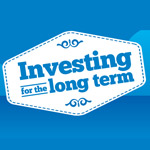Time to reflect
 Ready or not, the end of the year is fast approaching and now is the perfect time to start thinking about the year ahead.
Ready or not, the end of the year is fast approaching and now is the perfect time to start thinking about the year ahead.
In particular, this time of the year presents a great opportunity to meet with us to review your financial strategies and goals.
Many people use the Christmas/ New Year period to reflect on the year that has just passed, often in a blur and to begin thinking about the year(s) ahead. In particular, this time of year presents a great opportunity for you to review your financial strategies and goals in preparation for 2014 and beyond.
THE IMPORTANCE OF REVIEWS
Reviews should take place on a regular basis, where you have the opportunity to make informed decisions and factor any changes into your financial plan.
Below is a simple guide to tidy up your finances for the year ahead.
1. HAVE YOUR KEY FINANCIAL GOALS CHANGED?
Our lives are not constant and our goals change slightly (or greatly) from year to year. Also, major life events such as serious illness, the birth of a child, inheritance, marriage and the death of a parent or spouse can all result in significant changes to our wealth management goals.
2. PRIORITISE YOUR GOALS
It is important to rank and prioritise goals and decide in what timeframe you want to achieve them. Being realistic about your timeframe is essential to ensuring that your goals will be achieved.
3. SHORT, MEDIUM OR LONG TERM?
Most industry experts agree that a short-term goal is one that can be achieved within a year or so. Medium- term goals typically require two to five years, and long-term goals usually take longer than five years.
For example, reducing credit card debt is likely to be a short-term goal, whereas saving for a home deposit would often be a medium-term goal. Depending on your age, providing for retirement is a long-term goal.
4. IF YOUR FINANCIAL GOALS HAVE CHANGED, HOW WILL THIS AFFECT YOUR FINANCIAL STRATEGY?
This is where the advice of a financial adviser is critical. An adviser has the tools and knowledge to create projections that take into account changes to your goals and changes to your timeframes for achieving them. These projections will help you to see where your plans for savings, investment contributions or assets may need updating.
5. BE SAVVY
Make sure that your investments and level of protection support your level of risk and your goals. An adviser can develop a tailored analysis that best suits your individual needs and provide ongoing portfolio advice.
Reflecting and thinking about your financial position, as well as setting a clear path, is critical to making sure you can reach your goals. You don’t have to wait until the first day of January to review your financial situation. Contact us today so that you can get the help you need to achieve your “New Year” resolutions.
Source I Zurich






 It’s never too late to rescue yourself and take control of your financial destiny.
It’s never too late to rescue yourself and take control of your financial destiny.